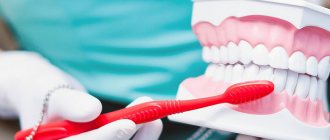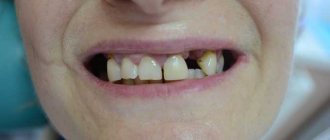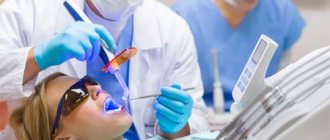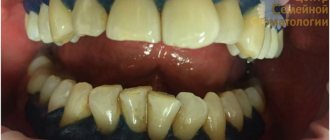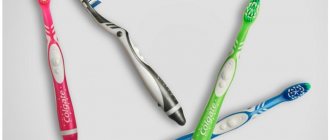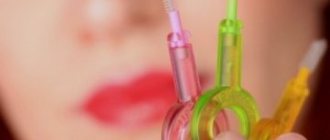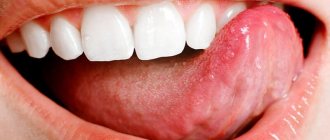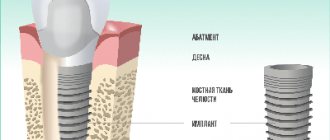Who among us hasn’t had a toothache at least once in our lives? Probably those who do not have teeth and never had them. But there are no miracles in life, and therefore everyone is familiar with the concept of “toothache,” acute and painful. Regular visits to the dentist can prevent its occurrence. Only few people do this, since they are afraid of the dentist even more than the appearance of the notorious pain, and turn to him mainly in case of emergency.
Who among us hasn’t had a toothache at least once in our lives? Probably those who do not have teeth and never had them. But there are no miracles in life, and therefore everyone is familiar with the concept of “toothache,” acute and painful. Regular visits to the dentist can prevent its occurrence. Only few people do this, since they fear the dentist (and to be more precise, his drill and other, no less terrible, instruments) even more than the appearance of the notorious pain, and turn to him mainly in case of emergency.
Much to our regret, such a need arises more often than we would like. Therefore, the queue at dental clinics never ends, and dentists are one of the highest paid professions in the medical industry. For the most part, this fact is the reason why the dental profession is extremely popular among applicants who choose “lucrative” specialties. However, they forget that the dentist’s profession is not only guaranteed material well-being, but hard work, which can only be performed efficiently if you have certain abilities. And today we will tell you what personal qualities a dentist should have.
History of the profession
The very first mentions of dental therapy are found in the history of Ancient Egypt. Tools similar to modern analogues have been found more than once in tombs. Many more Egyptian skulls with crowns on their teeth were also discovered there, and these were not only rich people. Judging therefore, it can be said that some types of dentistry were developed in Egypt. In addition, the first toothpaste was mentioned at the same time . It included:
- ashes of the burnt entrails of a bull;
- ground eggshell;
- myrrh;
- crushed pumice.
Then in the IV-V centuries. BC, the great Hippocrates became interested in this science. He recommended eliminating pain with a hot iron. At that time, many people suffered from toothache and did not understand how to deal with it. Fatalities from common flux were common, and during the time of Hippocrates, dentistry advanced several steps forward.
In your free time from work, you can earn extra money
on freelance exchanges (by writing comments, reviews, or simple actions on social networks) - choose what you like best and start earning money!
The first toothbrushes appeared in the Middle East in 500 AD. And in the 4th century AD. e. found forceps used to pull out bad teeth. And also powerful drugs that relieve pain appeared: arsenic and opium. Therefore, people began to understand that there is no need to rush to remove teeth, but that they can be treated. So, in 659 the first fillings appeared.
This specialization developed, and already in Russia, during the reign of Peter I, the profession of dentist officially arose, and rapidly became popular among men and women. In 1881, the first educational institution appeared in St. Petersburg, which trained future dentists. Then such institutions began to open throughout Russia.
February 9 is considered to be International Dentist Day, which falls on the day of St. Apollonia. After all, it was she who accepted martyrdom for Christ. She was tortured with forceps, which caused hellish pain.
Dentist and dentist: what is the difference between them and who a dentist can work in a clinic
Dentistry
The phrase dentist appeared in Russia in 1710. Before this, no one had treated the teeth; they were gradually destroyed . If a tooth started to hurt badly, it was simply pulled out. Thanks to Tsar Peter I, dental schools appeared. Only a hundred years later a decree was issued prohibiting practicing medicine without a diploma.
Gradually, dental faculties began to appear at universities. Dentistry began to develop rapidly as a science. There is a need to pay more attention to diseases of the oral cavity.
Already at that time, people needed specialists with extensive knowledge in this field of medicine. Over time, the phrase dentist has become less common. It has been replaced by the word dentist.
What's the difference?
In a modern college you can get an education and become a dentist after 3 years if you have a diploma. Such a specialist can work and treat teeth, but with some restrictions. For example, he will not be able to treat:
- pulpitis;
- correct bite;
- engage in complex prosthetics;
- do anesthesia.
In fact, many people do this in practice. Mainly in small settlements where there are no necessary specialists, the dentist is forced to provide assistance to people without having the right to do so by law. Essentially, he performs the functions of a dentist.
Abroad, a dentist is called a dentist . They receive education in secondary medical educational institutions. Few specialists abroad have a diploma of higher medical dental education. Mostly such specialists are found in large cities, and not in small towns.
Who is a dentist?
The main difference between a dentist and a dentist is the level of education. The dentist has more knowledge, experience and skills, as well as authority. To obtain a specialist diploma, he is forced to study for 5 years and undergo a residency for 2 years. In addition to knowledge in the field of dentistry, the future specialist also studies other diseases of all systems of the human body:
- anatomy;
- human physiology;
- histology;
- psychology;
- pharmacology;
- biological chemistry;
- bacteriology;
- healthcare organization, etc.
This is due to the fact that it is impossible to treat the oral cavity without studying the human body. The specialist must know how other organs are structured and how they are connected to each other . Psychology is also necessary, since people often come to appointments in a depressed and nervous state.
All graduates after graduating from medical university receive a diploma in general dentistry. Immediately after this, the graduate must choose a narrow specialization:
- dentist-therapist;
- dental surgeon;
- orthopedic dentist;
- orthodontist;
- pediatric dentist.
If you wish, you can master all specialties. This will take a long period of time and money. What do these specialists do?
Therapist and orthopedist
A dentist and dental therapist will be able to provide assistance in treating a diseased tooth or changing a filling. They will both be able to identify the cause, examine the oral cavity, and talk about the rules of dental care. As for dental disease, in this case the dentist will be in a difficult position.
Due to his qualifications, he will not be able to treat deep caries if there are problems with the gums, the tooth is severely damaged, or the pulp is inflamed. With such problems, he will refer the patient to a dentist-therapist .
It is recommended to visit this specialist once every six months to avoid dental diseases.
An orthopedist deals with dental prosthetics. It helps a patient who has lost a tooth to restore chewing function and not be embarrassed to smile. He is also sometimes called a prosthetic dentist. Before visiting an orthopedist, the patient first goes to a dental therapist and after treating the masticatory organs, he refers him to an orthopedist.
The difference between them is clear: one deals with treatment, the other with prosthetics. First you need to go to an appointment with a dental therapist and then an orthopedic dentist. This specialty is now in great demand. Such a specialist will be able to offer the patient several options for prosthetics , including the most modern ones.
Surgeon and orthodontist
- malocclusion;
- injury to the jaw or its joint;
- prepare the oral cavity for implantation or implantation;
- anomaly of the dentition.
These are quite complex manipulations that only such a doctor can perform. He will give recommendations for oral care after tooth extraction, and also tell you what needs to be done to make the wound heal faster.
Who are orthodontists? They are engaged in correcting the pathological structure of the jaw. Their work comes down to correcting the curvature of teeth, eliminating improper growth of the dentition, individual teeth, and reducing the distance between them. Nowadays popular braces are also installed by an orthodontist. They are well tolerated by patients because they do not injure the tissues of the oral cavity.
These specialists work with adults and children in the same way. Children are often brought to them with a bite problem , since in childhood this problem can be corrected quickly.
Types of specialization
This type of activity is multidisciplinary and covers a wide range of activities. Therefore, modern science has divided this branch of knowledge into a number of specialized specialties:
- Dentist-therapist . You can find out what this doctor does if a person has dental problems and pain. His responsibilities include a preliminary examination of the patient’s teeth and prescribing subsequent treatment. He also treats caries and inflammation in the oral cavity. After examination and diagnosis, the doctor refers you to specialized specialists.
- Prosthetist . If the therapist did not cope with the task, then people come to this doctor. He deals with prosthetics and offers different options to patients. Then he makes a description, impressions of the teeth and adjusts them to the particular structure of the patient’s mouth.
- Dental hygienist . Examines the oral cavity, removes plaque, polishes enamel and advises people on the prevention of dental diseases.
- Orthopedist . It is based on the removal of distortions in the bite and the installation of different types of orthopedic dentures - removable, fixed and combined, and also corrects the position of the teeth in the oral cavity.
- Surgeon . You cannot do without it, because there are cases when surgical intervention is necessary. The surgeon prepares the oral cavity for the upcoming procedure of inserting dentures. His competence includes jaw practice, treatment of wounds on the face and mouth, and jaw restoration.
- Maxillofacial surgeon . The specialty of these doctors was complex operations of various types using general anesthesia and correction of the jaw area.
- Pediatric dentist . In young children, baby teeth have certain characteristics, and working with them requires skills. In addition, the pediatrician must get along with children so that they are not afraid before the procedure.
- Orthodontist . Unlike an orthopedist, he deals primarily with exceptional cases, anomalies, and deviations in the development of the jaw.
- Periodontist . Specializes in the gums and soft tissues that support and surround teeth. Consults patients about bleeding gums, the appearance of tartar and plaque on teeth.
All these names, or rather, specialties, can be mastered at the Faculty of Dentistry of a medical university. The first 2-3 years are spent on general training, and then there will be training in a specific profession. It is for this that you need to pass the exam for the category.
Smiling Wizard
Most children are afraid to visit clinics. And sitting in a dental chair is an incredible feat for many. That is why the pediatric dentist has a responsibility that does not apply to the adult dentist - to always be patient and positive. The doctor must have an arsenal of techniques that help calm the baby, find a common language with him, make friends, and explain the importance of the upcoming procedures.
The most important thing is not to scare the little patient. Therefore, the doctor often has to talk to the child throughout the entire appointment and talk about his instruments. If the patient still becomes upset and refuses to undergo the procedure, the doctor must find the appropriate words to calm him down. And so on throughout the entire shift. Therefore, a pediatric dentist must have limitless patience, self-control, and at the same time love and understand children very much.
Job Responsibilities
Even at the institute, immediately after admission, the student is prepared for future work and clearly delineates what will become his vocation.
Job responsibilities of a dentist include:
- carrying out diagnostics and providing all types of dental services to the patient;
- treatment of teeth, oral cavity and maxillofacial area;
- preparation of dental and orthopedic instruments and their correct use for their intended purpose, adhering to safety precautions;
- collection of biomaterial for analysis;
- carrying out prevention, diagnosis and treatment of all types of caries;
- correct removal, prosthetics and installation of fillings;
- registration of medical documentation established by law;
- compliance with job instructions.
These are mandatory items that require strict implementation.
What do you have to do at work?
The dentist's specialization determines his field of activity. However, this is always work with maxillofacial defects of people, maintaining the health of the oral cavity, and eliminating problems of its natural development.
The profession requires good hand motor skills, sharp vision, the ability to concentrate, concentrate and carefully manipulate a tool in a confined space.
Requirements for a dentist
In addition to the clearly limited responsibilities that define the work of a doctor, there are also qualification indicators that are used to guide the employment of specialists.
People who:
- have a diploma with higher medical education, a certificate of a certain specialization;
- passed a medical examination and received a medical certificate;
- have experience in this field;
- have computer skills;
- presence of responsibility, sociability, attentiveness and accuracy.
Personal qualities and skills are no less important for this profession. These include:
- the presence of excellent coordination of movements, hand motor skills, excellent vision;
- knowledge of human anatomy and physiology;
- understanding the effects of medications used in dentistry;
- ability to use specialized instruments, as well as an X-ray machine and interpret images.
It is inherent in a dentist to be a bit of a psychologist, to be able to communicate with nervous patients, to correctly explain the situation in order to relieve nervousness and calm the patient.
Qualities a dentist should have
Obviously, the medical profession requires constant interaction with people. Therefore, qualities such as communication skills and philanthropy are mandatory for a dentist. This also includes patience, tact, stable character and lack of disgust. Since for most people a visit to the dentist becomes a serious stress, one of the doctor’s tasks will be to relieve the patient of fear. To do this, you will have to look for an individual approach to each person. In fact, any doctor, regardless of his specialization, must be a subtle psychologist. Otherwise, it is unlikely that you will be able to achieve the status of a highly qualified specialist.
In addition, the dentist will have to spend most of his time leaning over the chair with the patient. Therefore, perseverance and self-discipline skills will be additional bonuses. As mentioned above, to become a successful dentist, you need to constantly learn and improve your level of professionalism. Accordingly, lazy and uninitiated people will have to make a choice in favor of another specialty. It is important to note that the dentist is forced to deal with small instruments and the finest technologies. For this reason, this field of activity is closed to people with poor vision, impaired fine motor skills of the hands, disorders of the nervous system and musculoskeletal system.
In conclusion, it should be noted that such a prestigious profession as a dentist guarantees its owner a comfortable existence. But, despite such rosy prospects, this activity implies great responsibility and constant psychological stress. In addition, studying at a medical school will require the student to have perseverance, high efficiency and great strong-willed qualities. Since this is not given to everyone, it is necessary to choose a profession taking into account the characteristics of your own temperament.
Principles of training
If you decide to become a dentist, then you need to understand that this profession is very responsible. Therefore, it is necessary to obtain a medical education.
Those who are interested in dentistry are wondering: how long to study to become a dentist and what is needed for this. To enter a university, you must:
- complete 11 grades in a secondary school;
- pass the appropriate exams in biology, chemistry and Russian.
It is necessary to understand whether a person is ready for this profession. To obtain a specialty in this field, you need good study and a specific goal, as well as the ability to find an approach to even the most picky and harmful patients.
Where can you become a dentist?
MADPO invites you to take dental professional retraining courses. The training program is based on relevant educational and professional standards
We offer to take advanced training courses in the specialty of dentistry, bringing their knowledge in line with modern requirements - the main goals of the courses.
MASPC invites you to take professional retraining courses in the dentistry program. We offer advanced distance education technologies with the issuance of a standard diploma.
To become a dentist, you need to graduate from a medical university in one of the dental specialties: “therapeutic dentistry,” surgical dentistry,” orthopedic dentistry,” “general dentistry,” orthodontics,” and “pediatric dentistry.” After this, you must complete an internship and receive a certificate giving you the right to conduct independent medical practice.
Note that those doctors who graduated from a medical university in other specialties can also become a dentist. To do this, they need to undergo postgraduate training in their chosen dental specialty.
It would not be amiss to mention that if you are serious about becoming a truly good dentist, then for training it is best to choose one of the best medical universities in Russia , which include:
- Moscow State Medical and Dental University named after. A. I. Evdokimova;
- First Moscow State University named after. I. M. Sechenov;
- St. Petersburg State Medical University named after. Academician I.P. Pavlova;
- Ural State Medical Academy (Ekaterinburg);
- Russian National Research Medical University named after. N.I. Pirogov.
Peoples' Friendship University of Russia
Moscow
[31.05.03] Dentistry
| Type | Form | Price |
| Bachelor's degree | Full-time | 330 000,00 ₽ |
Northwestern State Medical University named after I.I. Mechnikov
Saint Petersburg
[31.05.03] Dentistry
| Type | Form | Price |
| Bachelor's degree | Full-time | 280 000,00 ₽ |
St. Petersburg State Medical University named after. Pavlova
Saint Petersburg
[31.05.03] Dentistry
| Type | Form | Price |
| Bachelor's degree | Full-time | 245 000,00 ₽ |
| Bachelor's degree | Full-time | 245 000,00 ₽ |
Nizhny Novgorod State Medical Academy of the Ministry of Health of Russia
Nizhny Novgorod
[31.05.03] Dentistry
| Type | Form | Price |
| Bachelor's degree | Full-time | 234 000,00 ₽ |
North-Eastern Federal University named after M.K. Ammosova
Yakutsk
[31.05.03] Dentistry
| Type | Form | Price |
| Bachelor's degree | Full-time | 233 000,00 ₽ |
St. Petersburg State Pediatric Medical University
Saint Petersburg
[31.05.03] Dentistry
| Type | Form | Price |
| Bachelor's degree | Full-time | 220 000,00 ₽ |
Vladivostok State Medical University
Vladivostok
[31.05.03] Dentistry
| Type | Form | Price |
| Bachelor's degree | Full-time | 190 000,00 ₽ |
Samara branch of the Volga State Academy of Water Transport
Samara
[31.05.03] Dentistry
| Type | Form | Price |
| Bachelor's degree | Full-time | 185 000,00 ₽ |
Tyumen State Medical Academy of the Ministry of Health of Russia
Tyumen
[31.05.03] Dentistry
| Type | Form | Price |
| Bachelor's degree | Full-time | 180 000,00 ₽ |
Krasnoyarsk State Medical University named after. prof. V.F. Voino-Yasenetsky
Krasnoyarsk
Salary and place of work
As mentioned earlier, the profession is in demand and profitable. Therefore, dentists have a wide choice of places to work:
- public and private clinics;
- dental offices;
- sanatoriums and children's institutions.
Factors that affect wages are length of service, qualifications and region.
Salaries in the specialty range from 30,000 to 100,000 rubles, and in large cities you can earn much more. As practice shows, in private clinics the income is much different compared to public clinics. On average, it is 45,000 rubles.
Availability of clients in queue
A good specialist cannot necessarily work in an expensive, private hospital. It is possible that your future dentist works in a public hospital. Although, if a clinic respects its reputation and its clients, it always tries to lure a good specialist. Ask your friends which doctor they use. As a last resort, you can use Internet search engines. Call a specialist and ask for an appointment. If he is a truly respected and good doctor, there will be a queue. So, the appointment will be scheduled in 1-2 days. Possibly in the evening.
Resume sample
To find a job faster, you need a resume that can be sent to several companies at once. You need to know how to compose it correctly.
The resume must include:
- Full Name;
- Date of Birth;
- contact details: phone, email;
- citizenship;
- experience;
- basic and additional education;
- professional skills;
- knowledge of languages;
- personal qualities.
The resume should be simple and understandable; there is no need to write or invent a lot, because then in practice all the qualities and abilities of the specialist will be assessed.
The difference between a dentist and a dentist
A dentist is a dentist who is a paramedic. This concept is more commonly used abroad; in some countries it simply has not taken root.
This profession differs in the type of education. You can study at a medical school, college and get a secondary education to become a dentist, but dentists only need a higher education. Accordingly, their specialization will be different.
Responsibilities of a dentist:
- examination of the patient, making a primary diagnosis;
- gum treatment;
- installation of seals;
- oral hygiene instructions;
- provision of pre-medical care and referral to specialists;
- assistance in choosing toothpaste and brush.
A dentist is trained to work with simpler cases than a dentist, so his income will be different.
Qualities of a specialist
Dentists need the following special qualities:
- Organizational skills, including maintaining accurate records of patient care, are important in medical, business settings.
- Communication skills to communicate with patients and colleagues.
- Attention to details. Dentists must pay attention to detail to ensure that patients receive appropriate treatment and medications. They should pay attention to the space, shape, and color of the teeth. For example, they may need to accurately match the false tooth to the patient's other teeth.
- Dexterity will help you work with tools and materials.
- Leadership skills. Some specialists work in their own practice, which requires them to manage and supervise staff.
- Patience helps you work for long periods of time with clients who need attention. Children and patients with dental fears may require a lot of patience.
- Physical endurance to perform physical tasks such as bending over patients for prolonged periods.
- Skills in assessing symptoms and choosing treatment methods.
Advantages and disadvantages
As in any profession, it is not the subject that matters, how much dentists earn, but the positive and negative nuances.
The positive aspects of working as a dentist include:
- qualifications are in demand in all countries of the world;
- high profit payment;
- normal working hours;
- Private practice is possible when you have a lot of experience.
There are also negative indicators that should not be forgotten. The negative aspects include:
- greater responsibility for the patient;
- high cost of training;
- possible stressful situations at work;
- competition;
- expensive equipment and tools;
- the need to constantly improve skills;
- working with different people.
Dentistry is a kind of art that has always been considered a prestigious profession. Therefore, every year students enter universities for this specialty in order to learn and then work and receive high wages.
Dentist salary
There are many dental clinics in every city - this creates competition and improves the quality of services. Earnings depend not only on the place of work, but also on experience, as well as the availability of an established patient base.
According to online employee search services, a dentist can expect the following salary:
- The minimum salary is approximately 12 thousand rubles.
- The maximum salary is up to 600 thousand rubles.
The lowest salary is offered in public clinics.
The average salary of a dentist is approximately 50 thousand rubles.


